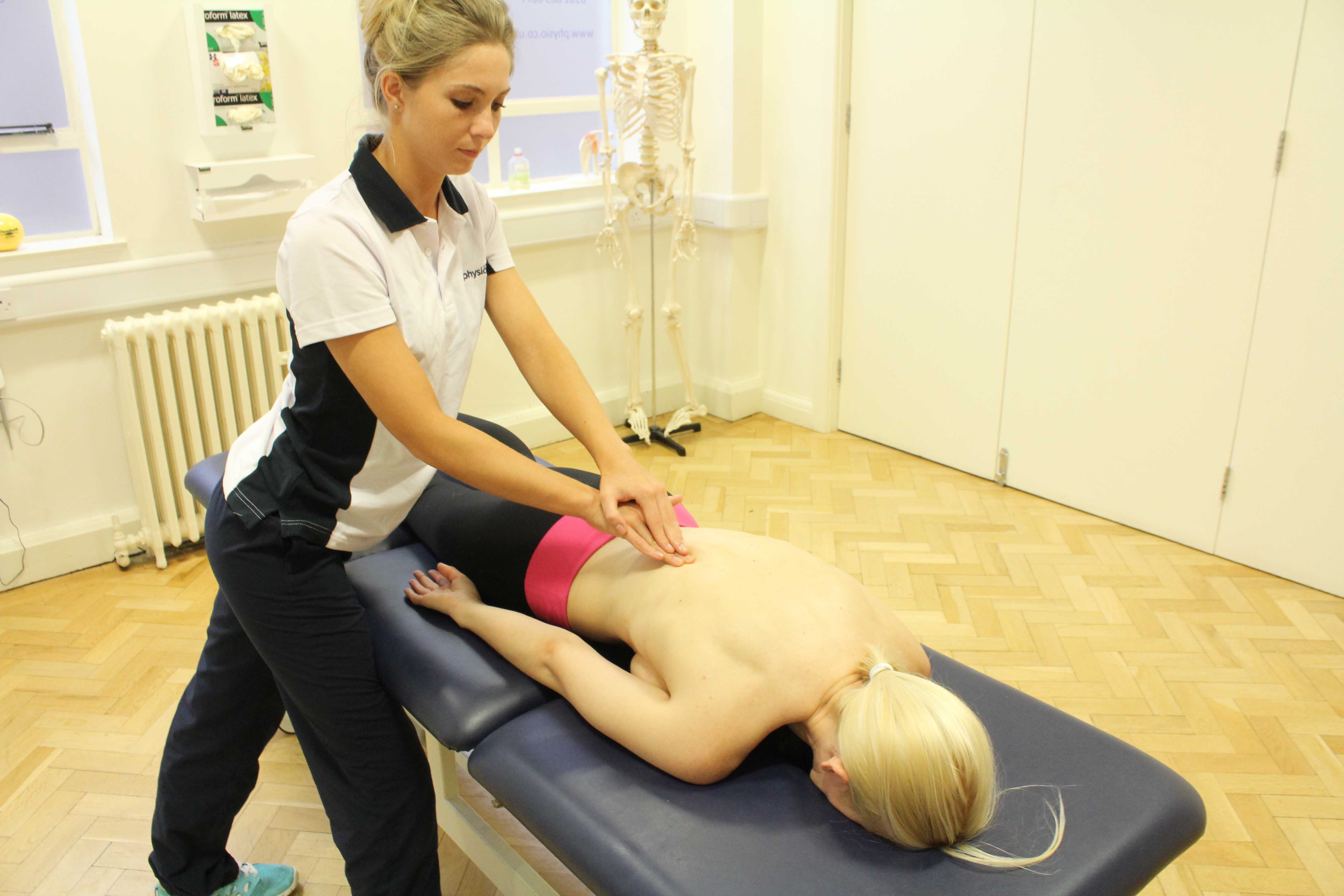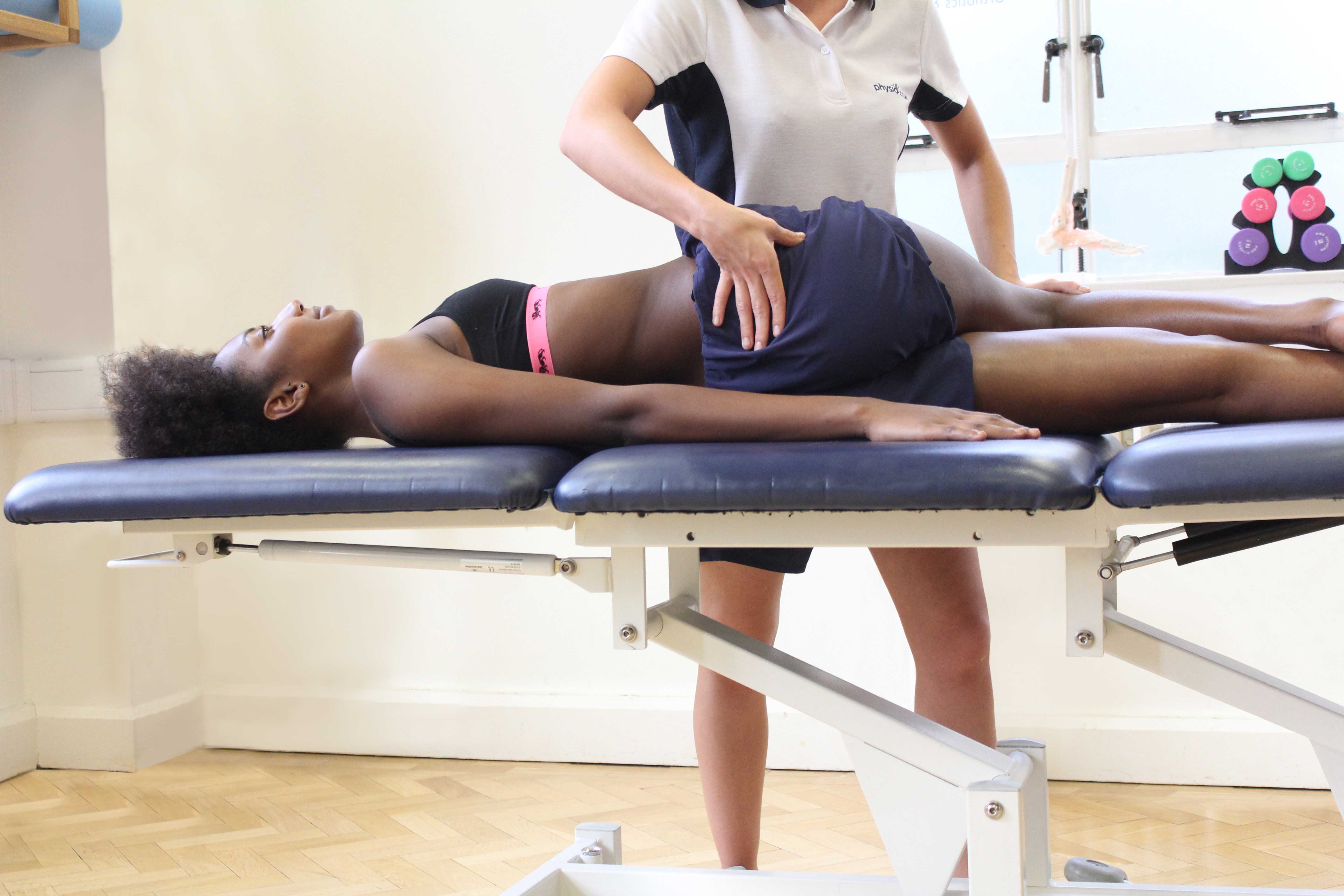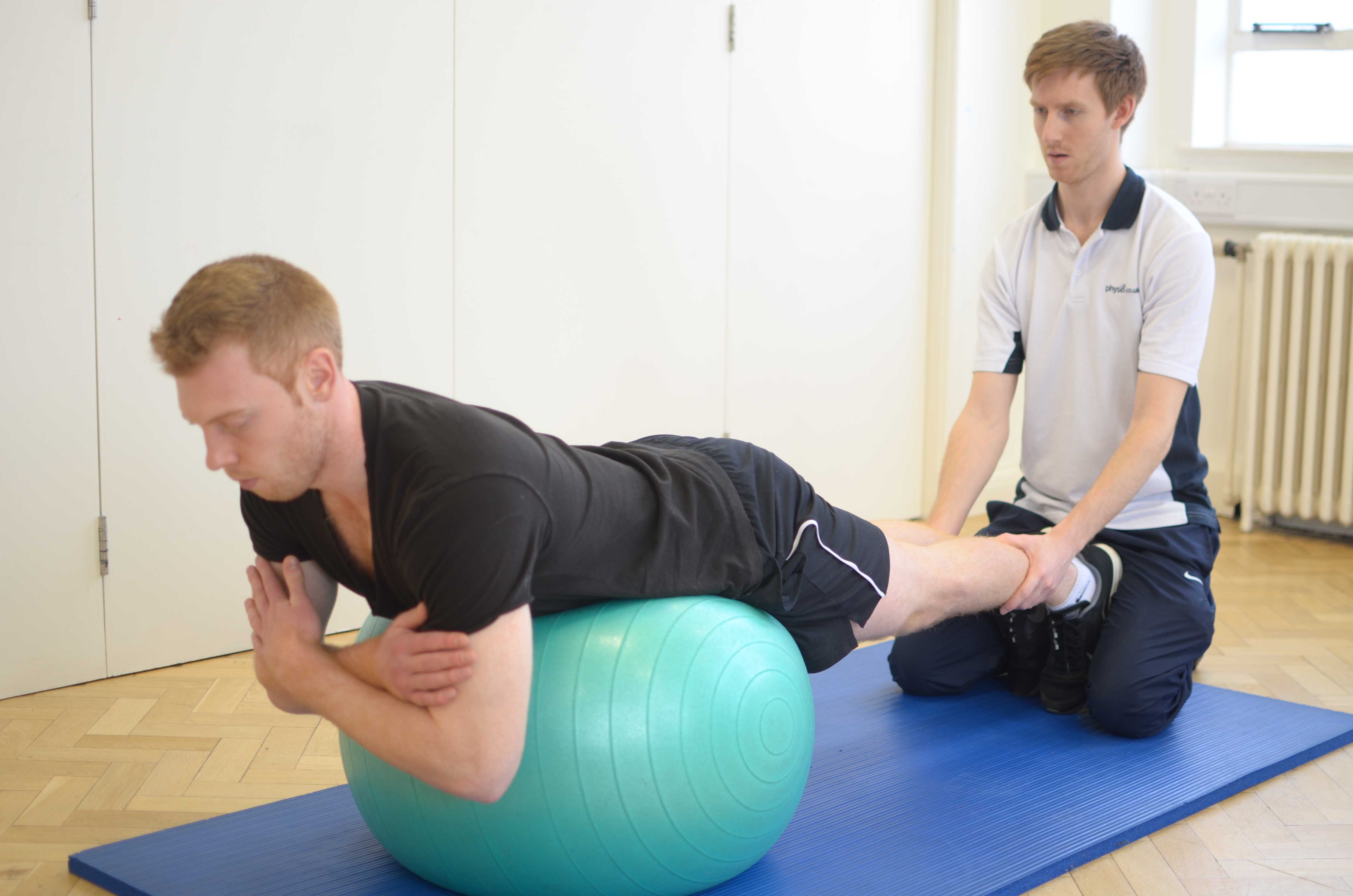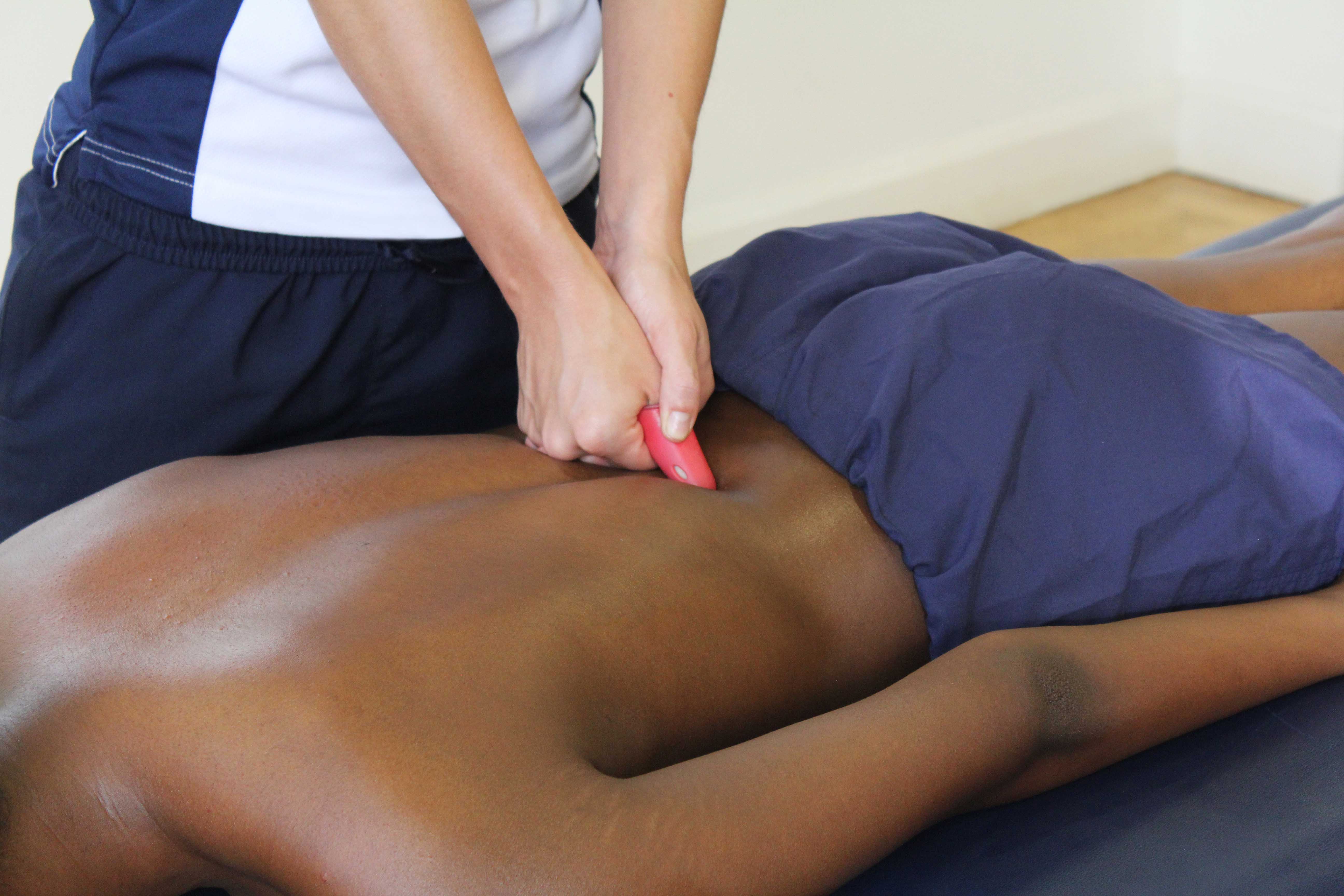What is whiplash of the lower back?
Whiplash of the lower back is caused by a sharp, sudden movement of the trunk either forwards, backwards or to the side. The injury is similar to whiplash of the neck but involves the muscles, tendons and ligaments of the lower back. Physiotherapy is an important treatment for whiplash of the lower back.
 Above: Soft tissue massage of the lower back muscles and connective tissue by specialist therapist
Above: Soft tissue massage of the lower back muscles and connective tissue by specialist therapistHow does whiplash of the lower back happen?
Road traffic accidents are the most common cause whiplash of the lower back. The violent movement causes the lower back to be forced beyond its normal range of movement resulting in tendons, ligaments and muscles being stretched. There are also a number of small joints in the lower back which can become injured during the movement. Other causes of whiplash of the lower back include a fall from height or lifting a heavy object.
What are the symptoms of whiplash of the lower back?
The most common symptoms are pain, swelling and stiffness of the lower back. You may find the area very tender to touch and muscle spasm may surround the injury making movement more difficult and painful. Additional symptoms include:
 Above: passive stretch of the lower back muscles and connective tissues by an experienced therapist
Above: passive stretch of the lower back muscles and connective tissues by an experienced therapistWhat should I do if I have whiplash of the lower back?
Most symptoms of whiplash only last up to a week. However, it is important to visit your GP or nearest hospital depending on the type of accident as there may be more serious symptoms that need treating. Icing the area will help to reduce any swelling and this can be done by wrapping frozen peas in a wet towel and applying it to the skin for up to 10 minutes at a time. This will also help to reduce the pain. Your GP will probably prescribe you with painkillers or anti-inflammatory drugs so you can try and move the area as much as possible.
Physiotherapy treatment for whiplash of the lower back.
Some symptoms of whiplash may continue for several months before they completely subside. In every case, it is important to begin a physiotherapy programme as soon as possible to give you the best possible recovery outcome. Physiotherapy will include cryrotherapy (ice) to reduce any swelling and massage to minimise muscle spasm. Range of movement and strengthening exercises will also be included to improve movement and limit the amount of stiffness in the lower back. Other treatments include:
 Above: Progressive strengthening exercises for the lower back supervised by specialist MSK physiotherapist
Above: Progressive strengthening exercises for the lower back supervised by specialist MSK physiotherapistWhat shouldn’t I do if I have whiplash of the lower back?
You should not ignore symptoms of whiplash of the lower back. This will increase your recovery time and may cause long term complications such as poor movement and weakness of the lower back. It is important to avoid heavy lifting and repetitive movements until your symptoms have completely subsided. This will facilitate effective healing of the area and minimise reoccurrence of the injury.
Could there be any long-term effects from whiplash of the lower back?
The longer symptoms of whiplash of the lower back, the more difficult it will become to return to full fitness. Physiotherapy can also help with more chronic (long-term) symptoms.
 Above: Trigger point massage of the lower back muscles by specialist MSK therapist
Above: Trigger point massage of the lower back muscles by specialist MSK therapistTo arrange a physiotherapy assessment call Physio.co.uk on 0330 088 7800 or book online.

 0330 088 7800
0330 088 7800





































